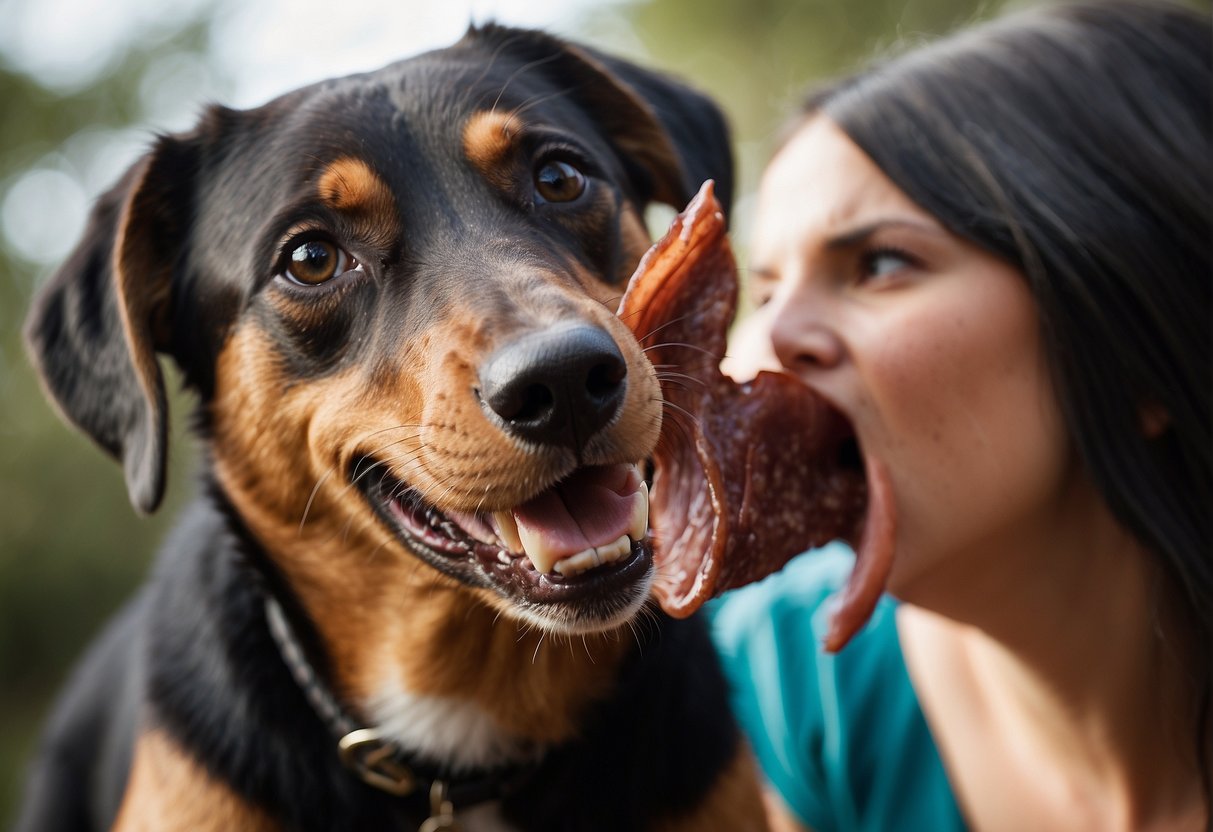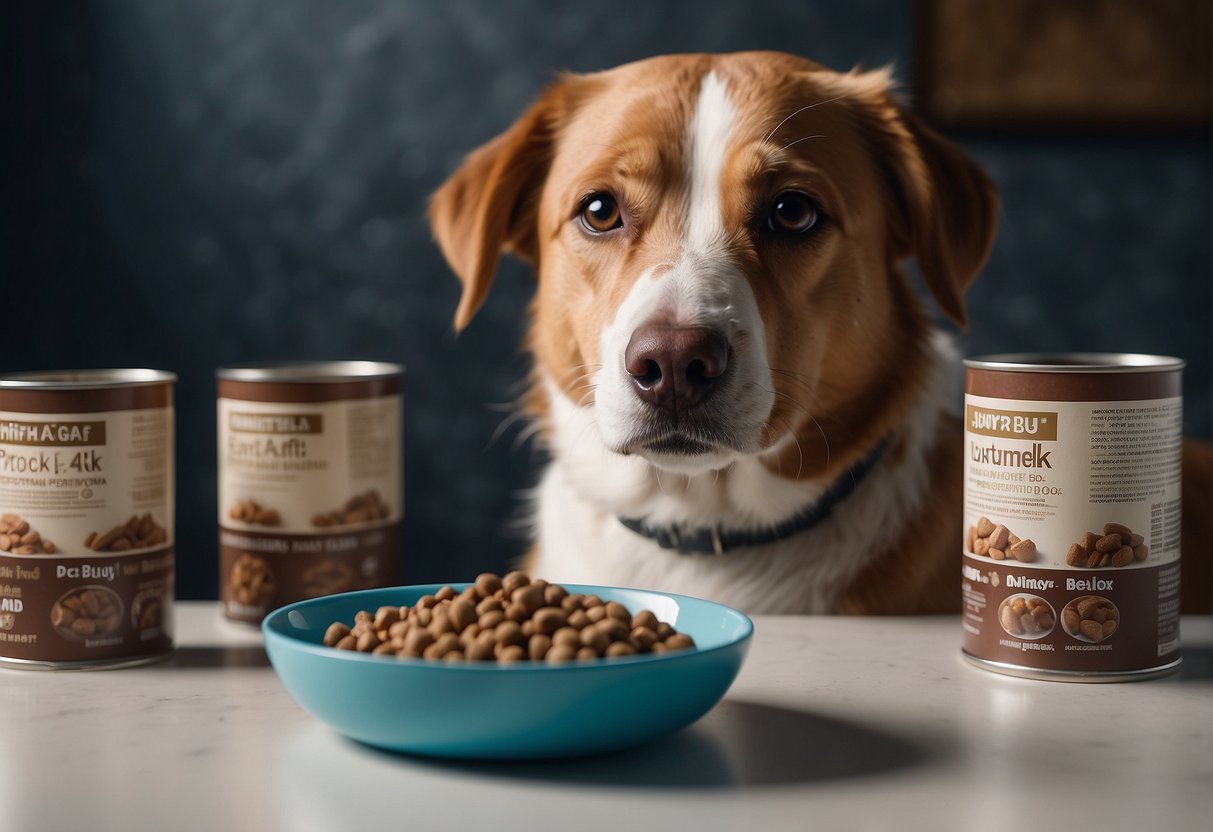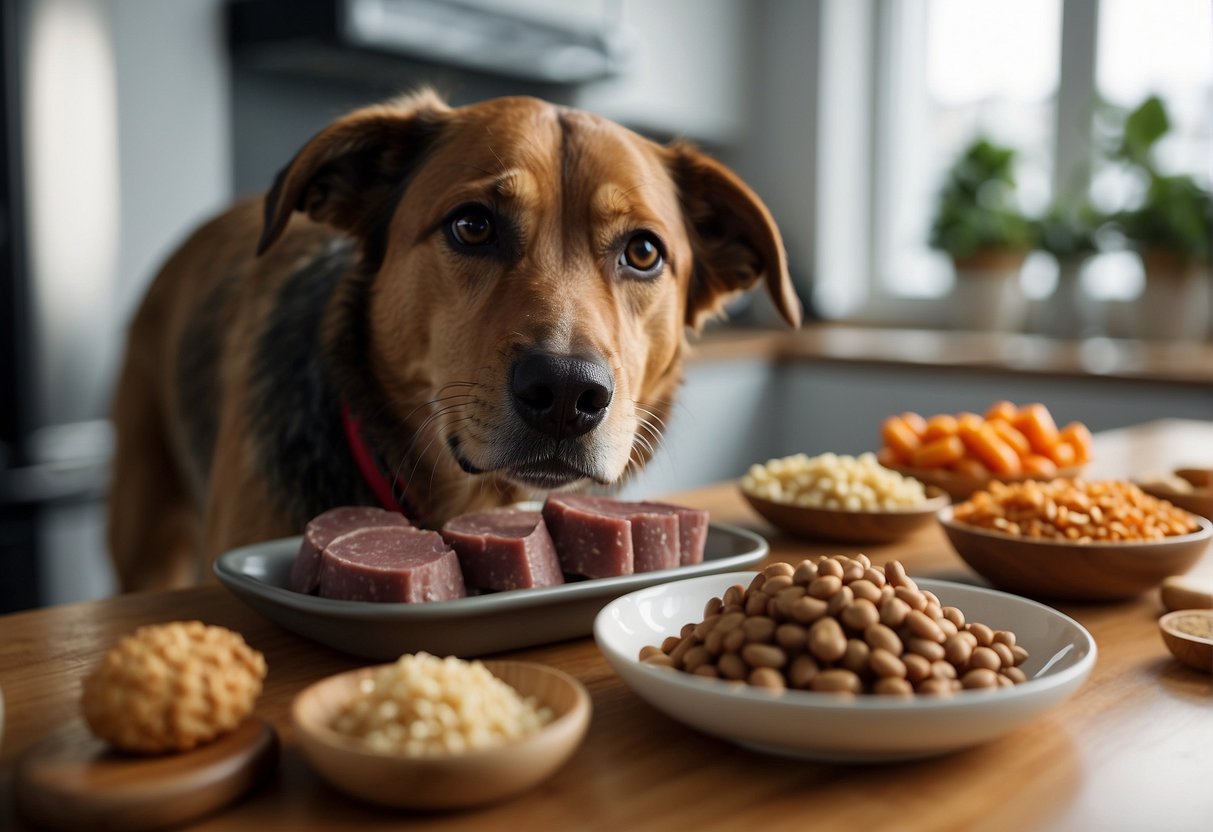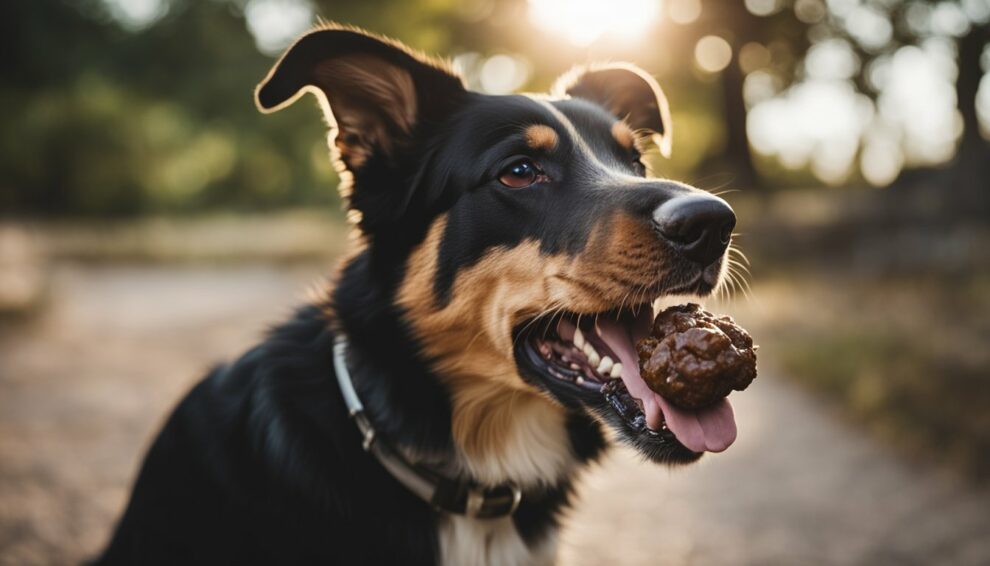Many dog owners are turning to raw feeding as a way to provide their pets with a diet that’s closer to what their canine ancestors might have eaten.
Among the various components of a well-rounded raw diet, liver stands out as a nutritional powerhouse.
Liver for dogs is not just a treat; it’s a vital source of essential nutrients that can help maintain their health in numerous ways.

Liver is often referred to as nature’s multivitamin because it is densely packed with vitamins and minerals crucial for canine health.
It’s loaded with vitamin A for healthy eyesight, vitamin B12 for efficient energy metabolism and nervous system function, and essential fatty acids that contribute to brain and joint health.
Moreover, liver contains a good amount of quality protein and is low in fat, making it an excellent food choice for maintaining lean muscle mass without the risk of weight gain.
When it comes to raw feeding, incorporating raw liver into a dog’s diet is an excellent method to ensure they are getting some of the most essential nutrients.
The high levels of vitamin A and essential fatty acids found in liver aid in maintaining healthy skin and a lustrous coat, while its contribution to a strong immune system is invaluable.
As dog owners continue to seek out the best for their furry companions, raw liver makes a compelling case for being a must-include item on the menu.
Benefits of Raw Liver for Canines

When considering a wholesome addition to a dog’s diet, feeding them raw liver can be highly beneficial.
This superfood is packed with essential nutrients that support their overall health and well-being.
Rich in Vital Nutrients
Raw liver is a powerhouse of vitamins and minerals essential for canine health.
It contains a wealth of B vitamins, particularly vitamin B12, which is crucial for red blood cell formation and maintaining healthy nervous system function.
The presence of vitamin A in liver aids in supporting vision, immune function, and skin health.
Furthermore, raw liver is an excellent source of iron and zinc, two minerals that play a significant role in cellular metabolism and strengthening the immune system.
Muscle Maintenance and Protein
Protein is the building block of muscles, and raw liver is abundant in high-quality protein, helping dogs maintain lean muscle mass.
Not only is the protein content of liver beneficial for muscle maintenance, but it also contributes to tissue repair and hormone production.
Feeding canines raw liver supports their active lifestyle and aids in their overall muscular health.
Choosing the Right Type of Liver

When selecting liver for a dog’s diet, the type and quality of the liver are crucial for maximizing health benefits.
It’s important to understand the differences between beef and chicken liver, and why sourcing high-quality liver is essential.
Beef Versus Chicken Liver
Beef liver is typically richer in nutrients compared to chicken liver.
It contains higher levels of vitamin A, essential fatty acids, and various B vitamins, making it a powerful addition to a dog’s diet.
However, chicken liver, while lower in these nutrients, can be a leaner option and is often more readily accepted by pickier dogs due to its milder flavor.
- Nutrient Profile:
- Beef Liver: High in vitamin A, B vitamins, Iron
- Chicken Liver: Less fat, Vitamin A, B vitamins
One should note that the serving size of beef liver should be monitored due to its high concentration of vitamin A, which can be harmful in excessive amounts.
The Importance of Quality
The liver acts as a filtration system for animals, so it’s imperative to choose liver that comes from healthy, well-maintained animals.
Grass-fed, organic, and pasture-raised options are optimal as they tend to contain fewer contaminants and a higher nutritional profile due to the animals’ natural diets and living conditions.
- Grass-Fed and Organic:
- Meat from animals that are grass-fed and raised organically is less likely to carry harmful bacteria or toxins.
- These liver sources are better for a dog’s overall health and can support their immune system.
When looking for the right liver for a dog, one should also consider the ethical and environmental benefits of choosing organic and pasture-raised products.
These practices often translate to better animal welfare and more sustainable farming practices.
Feeding Guidelines and Safety Measures

When incorporating liver into a dog’s diet, one should maintain a balance with muscle meat and be vigilant about the risks associated with liver consumption.
It is essential to regulate the quantity to safeguard the health of the pet.
Proper Liver to Muscle Meat Ratio
The right balance between liver and muscle meat is critical in a dog’s diet.
Typically, liver should make up about 5% of the total raw food intake, ensuring that the dog benefits from the liver’s nutritional value without overindulgence.
Too much liver can lead to vitamin A toxicity, so modulation is key.
A practical ratio to consider is 1 part liver to 19 parts muscle meat.
Understanding and Preventing Risks
While liver is nutritious, it’s important to be aware of toxins and parasites that could be present in raw meats.
Dogs should be given liver in moderation to avoid issues such as copper toxicity, where too much copper accumulates in the liver, leading to health problems.
Additionally, one must ensure the liver comes from a reliable source to minimize the risk of parasite transmission.
The amount of liver, or the dose, should always align with the dog’s size and dietary needs.
Innovative Liver-Based Treats and Recipes

Liver-based treats are nutritious and can be a delightful surprise for dogs. They offer a rich source of protein and essential vitamins.
By incorporating homemade treats and creative recipe additions, owners can ensure their dogs enjoy these benefits in a variety of tasty forms.
Homemade Liver Treats
One can create simple DIY dehydrated liver dog treats by washing the liver, patting it dry, and cutting it into bite-size pieces.
These pieces are then placed onto dehydrator trays for several hours until dry and chewy.
For those without a dehydrator, liver pieces can be baked in the oven on low heat to achieve a similar result.
This technique preserves the liver’s nutrients and creates a treat that’s both long-lasting and convenient.
-
Ingredients:
- Liver (beef, chicken, or any type your dog prefers)
- Optional: spices (ensure they are dog-safe)
-
Instructions:
- Wash and dry the liver.
- Cut into small pieces.
- Dehydrate or bake at a low temperature until dried.
Creative Liver Meal Additions
Diversifying a dog’s diet with liver can be as easy as incorporating freeze-dried liver pieces into their meals.
Freeze-dried liver retains most of the nutrients found in raw liver without the mess or the hassle.
One can also prepare a raw liver delicacy, popular in Lebanese cuisine, that offers dogs a taste of different spices and flavors—though it’s crucial to ensure all ingredients are safe for canine consumption.
-
Ingredients:
- Raw liver
- Dog-friendly seasonings (optional)
-
Instructions:
- Cut raw liver into small, manageable pieces.
- Optionally, mix with safe spices for additional flavor.
- Serve at room temperature as part of your dog’s meal.
When offering liver to dogs, it is important to do so in moderation as part of a balanced diet.
Too much liver can cause vitamin A toxicity in dogs.
Always consult with a veterinarian before making significant changes to a dog’s diet.
The Role of Liver in Special Diets
When considering a dog’s special diet, the liver can be an integral component for managing various health conditions.
For dogs with liver disease, incorporating liver into their diet provides essential nutrients that can support liver function without overburdening it.
Although it may seem counterintuitive, small amounts of high-quality liver help them obtain crucial vitamins and minerals.
For canines on a weight loss journey, liver serves as a nutrient-dense food that can help keep their diet balanced while reducing overall calorie intake.
It’s high in protein and low in fat, making it an excellent choice for dogs needing to shed a few pounds without compromising on nutrition.
Digestive issues in dogs may also be alleviated by adding liver to their diet, as it is rich in vitamin B and other nutrients that promote healthy digestion.
However, it’s important to introduce liver slowly to avoid any sudden changes that might disrupt their digestive system.
Those dogs with allergies may benefit from liver as well.
Being a single-ingredient food, it’s less likely to contain allergens that can trigger a dog’s symptoms, provided it’s sourced from animals that are free of hormones and antibiotics.
In a nutshell, the liver is an excellent addition to a dog’s special diet when used judiciously.
One should always consult with a veterinarian to determine the appropriate serving size and frequency, as each dog’s needs will differ.
| Condition | Role of Liver |
|---|---|
| Liver Disease | Provides essential nutrients without overburdening the dog’s liver. |
| Weight Loss | Offers a balance of nutrition and low-calorie intake. |
| Digestive Issues | Rich in nutrients that aid in digestion. |
| Allergies | Less likely to contain common allergens. |
Remember to introduce liver slowly into a dog’s diet and always keep a close eye on their reaction to new foods.















